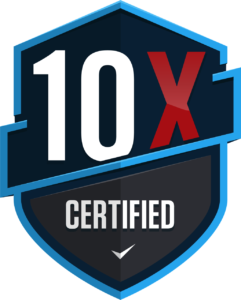In today’s fast-paced business environment, the path to success often requires more than just a great idea or a hardworking team. It’s about making smart decisions, navigating complex challenges, and continuously adapting to change. This is where the value of professional guidance becomes undeniable. Whether you’re a budding entrepreneur or an established business owner, the expertise of a business consultant or a business coach can be a game-changer.
But here’s the question that often puzzles many business owners: should you choose a business consultant or a business coach? While both offer valuable insights, their roles, approaches, and the benefits they bring to your business can differ significantly. This blog aims to demystify these roles, highlighting the key differences and helping you decide which is the right fit for your unique business needs.
Join me as we delve into the world of business consultants and coaches. We’ll explore their expertise, the specific problems they solve, and how they can help you achieve your business goals. Whether you need focused technical and professional advice, leadership skills development, or a sounding board for your ideas, understanding these roles will empower you to make an informed choice. Let’s get started on this journey to unlock the full potential of your business with the right professional support.

Understanding Business Consultants
Definition of a Business Consultant
A business consultant is a professional who provides expert advice and guidance in specific areas of business. They are often subject matter experts in fields like marketing, finance, operations, or human resources. Consultants bring a wealth of knowledge, skills, and experience to the table, offering solutions that are tailored to the unique challenges and goals of a business.
Key Roles and Responsibilities of a Business Consultant
The primary role of a business consultant is to help businesses identify areas of improvement and develop strategies for growth and efficiency. Their responsibilities include:
1. Conducting thorough analysis to understand business problems and challenges.
2. Offering expert advice and strategies to improve processes, performance, and profitability.
3. Assisting in the implementation of new systems, strategies, or changes in business structure.
4. Providing training and support to employees to ensure effective adoption of new initiatives.
5. Working closely with business owners and leaders to align strategies with overall business goals.
When to Consider Hiring a Business Consultant
You might consider hiring a business consultant when:
1. You need specific expertise for a particular area or project in your business.
2. Your business is facing challenges that require specialized knowledge to solve.
3. You’re looking to implement new technologies or processes but lack the in-house expertise.
4. You need an external, unbiased perspective to identify problems and propose solutions.
5. You’re preparing for significant growth or change and need strategic planning support.

Exploring Business Coaches
Definition of a Business Coach
A business coach is a certified coach who works closely with business owners or leaders to develop their personal skills and business acumen. Unlike consultants who focus on business strategy and solutions, coaches emphasize personal development, leadership skills, and unlocking the client’s own potential to solve problems and grow their business.
The Primary Functions and Goals of a Business Coach
The main functions of a business coach include:
1. Helping clients clarify their business vision and aligning it with their personal goals.
2. Guiding clients through personal development to enhance their leadership and decision-making skills.
3. Acting as a sounding board for ideas, challenges, and strategies.
4. Encouraging and supporting clients to develop their own solutions and strategies.
5. Focusing on long-term personal and professional growth, rather than just immediate business problems.
Ideal Scenarios for Engaging a Business Coach
Engaging a business coach is particularly beneficial when:
1. You’re seeking to develop stronger leadership and management skills.
2. You need help setting clear business goals and mapping out a path to achieve them.
3. You feel stuck in your business and need fresh perspectives and encouragement.
4. You’re looking for a partner to hold you accountable and keep you focused on your goals.
5. You want to enhance your personal effectiveness to drive your business forward.
In both roles, whether as a consultant or a coach, the focus is on driving success and growth, but they do so through different approaches and areas of expertise. Understanding these differences is key to deciding who you need to partner with for your business’s journey.

Business Consultant vs Business Coach: Comparative Analysis
In understanding the roles of a business consultant and a business coach, it’s essential to compare them on several fronts. This comparative analysis will focus on their expertise and skill sets, approach and methodology, the types of problems each is best suited to solve, and their impact on business growth and development.
Expertise and Skill Sets
1. Business Consultants: They typically have specialized expertise in specific business areas like marketing, finance, operations, or human resources. Their skill set often includes strategic planning, process optimization, and problem-solving in a particular domain. Consultants usually have a strong background in their field, backed by years of experience and often, formal education or certifications.
2. Business Coaches: Coaches, often certified in coaching methodologies, bring skills in personal development, leadership training, and motivational techniques. They excel in helping individuals improve their professional skills, decision-making, and ability to lead and manage teams effectively. Coaches might not have specific industry expertise but are skilled in guiding clients to find their own answers and strategies.
Approach and Methodology
1. Business Consultants: The approach is often structured and focused on the specific project or challenge. Consultants analyze data, diagnose problems, and propose solutions. Their methods are usually more prescriptive, offering a clear set of recommendations and strategies based on best practices and their professional experience.
2. Business Coaches: Coaches take a more holistic and client-centered approach. They focus on the client’s personal growth and leadership development, guiding them to discover their own solutions. The coaching process is often exploratory, involving questioning, reflection, and discussion rather than direct advice.
Types of Problems Each is Best Suited to Solve
1. Business Consultants: Ideal for addressing specific business problems, implementing new systems, or navigating complex business scenarios. They are the go-to professionals for technical and professional advice on particular business functions or when specialized knowledge is needed.
2. Business Coaches: Best suited for scenarios where the primary focus is on personal development, leadership skills enhancement, or when a business owner needs a sounding board for their ideas. They are ideal for ongoing support in achieving long-term personal and professional goals.
Impact on Business Growth and Development
1. Business Consultants: They can have a more immediate and tangible impact on a business by implementing efficient processes, strategies, and solutions. Their work often leads to measurable improvements in business performance, productivity, and profitability.
2. Business Coaches: The impact of a coach is often seen over a longer period. It manifests as improved leadership, better decision-making, and enhanced personal effectiveness of the business owner or leaders, which indirectly leads to business growth and development.
In summary, while both business consultants and coaches aim to support and grow a business, they do so in different ways. A consultant is your expert guide for specific business challenges and projects, offering targeted solutions and strategies. A coach, on the other hand, is your partner in personal and professional development, helping you grow as a leader and, by extension, nurturing your business’s growth. Deciding which one you need depends on the nature of your challenges and your goals for your business and yourself.
Making the Right Choice for Your Business
When deciding between a business consultant and a coach, consider these key factors:
Business Stage and Needs: Startups or expanding businesses might benefit more from a consultant’s technical expertise. In contrast, established businesses focusing on leadership and personal growth may find a coach more beneficial.
Budget and Resources: Consultants might require a higher budget for specific projects, while coaches offer more flexible cost structures for ongoing development.
Goal Orientation: For immediate, specific business issues, a consultant is ideal. A coach is better suited for long-term, personal, and professional growth.
Tips for Selection:
- Define your objectives clearly.
- Research and get referrals.
- Check credentials and experience.
- Have an initial consultation for compatibility.
The Synergistic Approach
Using both a business consultant and coach can be highly effective:
Complementary Skills: A consultant offers strategic business solutions, while a coach focuses on personal and leadership development.
Balanced Development: This approach addresses both immediate business needs and long-term personal growth.
Enhanced Decision-Making: The coach’s focus on personal development complements the consultant’s strategic planning, leading to more effective implementation and continuous improvement.
The choice depends on your current business needs, goals, and resources. A strategic combination of both can offer a comprehensive path to business success.

Choosing between a business consultant and a coach depends on your specific business needs and goals. Consultants offer targeted expertise for particular challenges, focusing on strategic solutions, while coaches emphasize personal growth and leadership development. Assess your business’s stage, challenges, and objectives carefully before deciding. Whether you need strategic direction or personal leadership skills, the right professional can significantly impact your business’s success.
For those in Denver seeking business coaching services, consider Business Coaching Denver – 10x Sales & Strategy for expert guidance tailored to your business’s unique needs. Feel free to share your experiences or seek further advice in the comments below. The right decision today can lead to a thriving business tomorrow.

